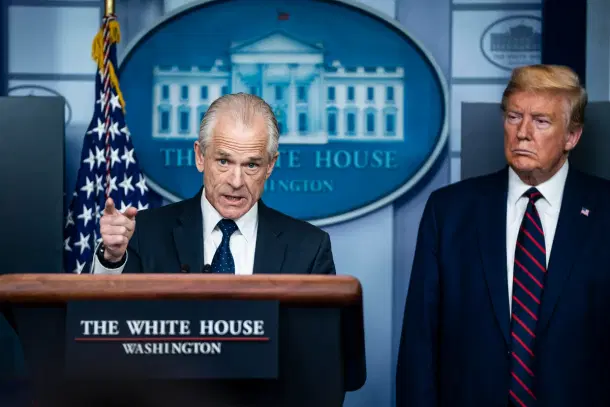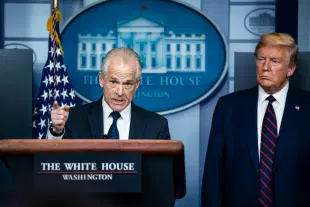News Brief
What Trump’s Trade Adviser Says About India In New FT piece — And What He Conveniently Forgets
Swarajya Staff
Aug 18, 2025, 01:22 PM | Updated 01:33 PM IST
Save & read from anywhere!
Bookmark stories for easy access on any device or the Swarajya app.


Peter Navarro, White House trade and manufacturing adviser under Donald Trump, has blamed India for indirectly funding Russia’s war in Ukraine, accusing the country of buying discounted Russian crude with dollars earned from American exports.
Writing in the Financial Times, Navarro painted Indian refiners as profiteers turning Russian oil into high-value exports while Moscow uses the proceeds to finance its military operations.
Navarro highlighted India’s surge in Russian crude imports, now more than 1.5 million barrels per day and over 30 per cent of total imports, and daily exports of more than a million barrels of refined products.
He also criticised India’s high tariffs, non-tariff barriers, and demands for technology transfers in US arms deals, arguing these practices undermine American strategic and economic interests.
He cited Trump administration measures imposing a 25 per cent national security tariff on Indian goods, adding to an existing 25 per cent reciprocal tariff.
But Navarro’s critique is as selective as it is loud. He never mentions China, whose close partnership with Russia is central to sustaining the war.
He ignores long-term US policies, including NATO expansion, that have provoked Moscow’s fears and contributed to the conflict.
More glaringly, he sidesteps his own boss’s campaign promise to end the Ukraine war on day one, a promise that has not been fulfilled.
Navarro even fails to mention that the US, under the Biden administration, encouraged India to buy Russian oil to keep prices in check.
Instead of holding the US accountable for its role in creating the conditions for war, Navarro pins the blame on India, reducing a complex geopolitical catastrophe to a story of “Indian profiteers.”
Navarro’s critique of India’s demands on US defence manufacturers, including requirements for technology transfers and local production, effectively suggests that the United States would not give India access to sensitive military technology.
Observers called the column an exercise in convenient scapegoating. While India’s role in Russian oil imports is undeniable, Navarro’s framing ignores the strategic realities and historical missteps that have kept the war raging.
In short, the Trump adviser appears more interested in scoring political points than offering a serious assessment, turning India into the fall guy for failures that lie far closer to home in Washington, and Beijing.





